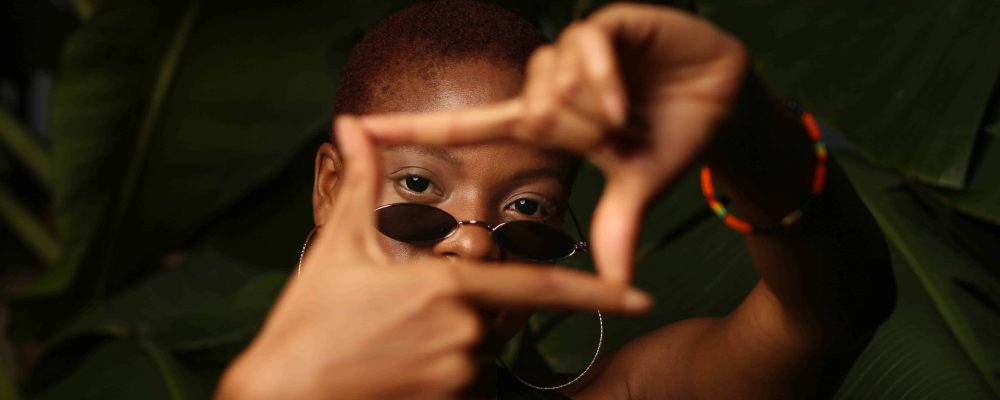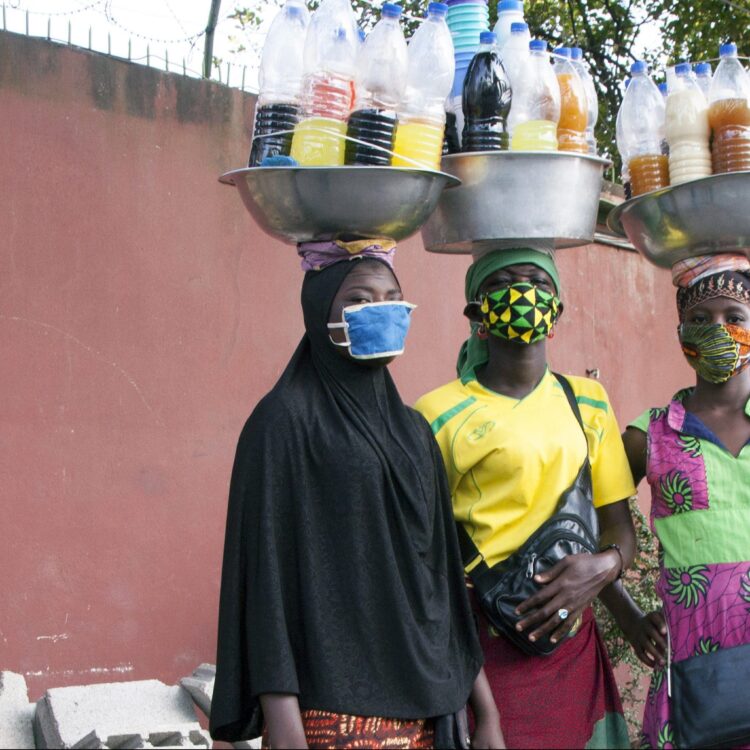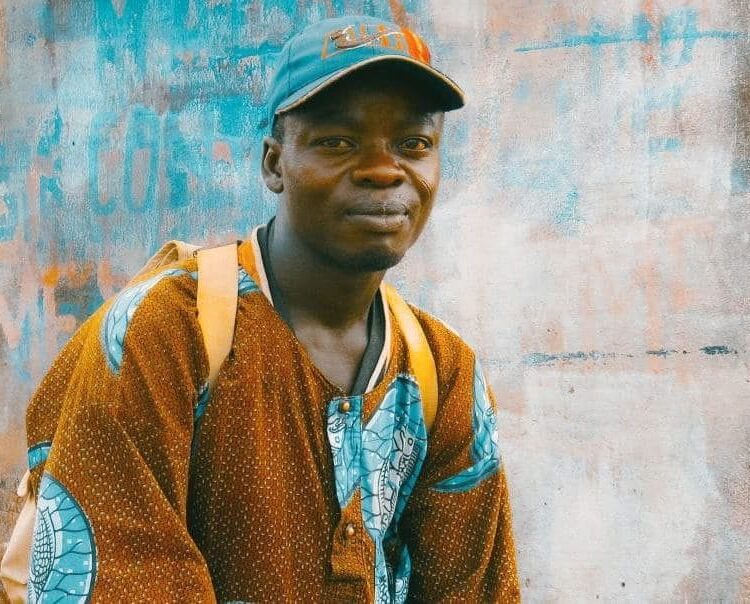
Young people, already hardest hit by unemployment and underemployment in normal times, require extra attention in during the COVID-19 pandemic. It is therefore necessary to promote youth (self-) employment and entrepreneurship now more than ever to mitigate the economic crisis brought by the crisis.
Although the impact of the COVID-19 pandemic has had minimal effects on health systems of many African countries, the pandemic threatens the economic outlook with adverse effects in the labour market, depending on whether countries are on partial or extreme lockdown. Young people are the most affected, as private sector companies continue to reduce labour forces due to increased production costs and reduced demand of products and services. This has resulted to a decline in revenues. The financial sector has not been spared either as they are gradually becoming risk-averse, thus reducing their credit lending, and only prioritizing customers with good credit history. Young people and MSMEs, already perceived not credit-worthy, are the most hit by this new trend.
In addition, movement restriction has affected supply of inputs for big industries and SMEs (agricultural and non-agricultural) as well as access to consumer markets. Simultaneously, the limitation on size of people gatherings has curtailed both formal and informal face –to-face meetings including educational, business and recreational events. At macro level, countries are incurring huge unplanned costs on containment, mitigation and prevention of COVID-19. Consequently, the pandemic has adverse implications on Opportunities for Youth Employment (OYE) activities such as trainings, meetings for youth savings and lending associations, mentoring and coaching sessions.
Providing solutions to COVID-19
COVID-19 presents new enterprise and employment opportunities for young people. OYE youth, already armed with tools and networks to identify these emerging opportunities are in the forefront of providing solutions in communities where they live. We provide a few examples of how OYE youth are intervening in making communities safer.
In service to others: RAYEE Ethiopia
Funded by the Mastercard Foundation as part of its Young Africa Works strategy, RAYEE aims to directly create employment in agriculture and agri-business for 60,000 young people and impact 240,000 others.
Following the COVID-19 pandemic, RAYEE youth are encouraged to identify alternative business ventures already affected by COVID-19 so as to take full advantage of new business opportunities presented by the pandemic. For instance, youth SMEs that used to work in clothes tailoring have opted to diversify their operations into production of face masks as the market for clothes decline. In addition, youth providing motorcycle public transport services are advised to get organized and venture into home delivery of consumables and franchised commodities.


Leading by example: OYE Mozambique
In this vast country in Southern Africa, our SNV team continues to be innovative in project repurposing, ensuring that youth remain at the forefront of contributing to mitigating COVID-19 impact in their communities. Funded by SDC and EKN, OYE Mozambique youth are undertaking the following activities:
- Awareness campaigns on hygiene and social distancing. By attending orientation meetings with community leaders in collaboration with District Service of Health Women and Social Affairs (SDMAS) while observing COVID-19 measures, OYE youth leaders are equipped with tools and information on the importance of social distancing. As change agents, they disseminate this very important information through SMS and WhatsApp messages to fellow group members and to other community members.
- Promoting face mask use. At the same time, the project is promoting the use of face masks and our young people are producing masks for communities of Montepuez and Balama regions. These operations could be scaled to gradually meet national demands.
- Youth entrepreneurship. Additionally, the project is stimulating youth entrepreneurship in production, sales, and distribution of products and services that reduce the impact of the corona virus, such as soap, disinfectants, medication, mobile handwashing stations and linking young farmers to markets while supporting them to produce horticulture crops and cultivation of fruits that boost their immunity. The project is also providing education to youth on balanced diets, need for kitchen gardens (fruits and vegetables) and healthy feeding habits especially for young mothers.
Innovating TIPPY-TAP: JEEN, Niger
SNV has undertaken a comprehensive program to complement the government’s initiatives in combating and containing COVID-19. In Niger, the youth are increasingly becoming change agents through their entrepreneurial acumen – JEEN youth (a project funded by the EU) have learned how to design an innovative initiative called TIPPY-TAP which links youth entrepreneurship with water and sanitation opportunities.
TIPPY-TAP is a community-based hand-washing device, a product that is easily adaptable and economical because it is assembled using locally available material. This hand washing devise is placed in front of households and within the neighborhood, for use by communities. JEEN youth are leading in the assembling and management of this devise including ensuring its maintenance. The devise has a faucet and a foot pedal to prevent disease transmission. It is also expected that they will mentor and coach others on how to assemble and manage this devise. This pilot is taking place in 4 municipalities of the Zinder region of Niger.
Moreover, a service delivery contract is established with departmental and communal health and sanitation office to provide young people with training and information on guidelines to contain COVID-19. As change agents, JEEN trained youth are responsible for disseminating the Ministry’s guidelines to communities and households on how to keep safe, healthy and from getting infected and spreading COVID-19. These nascent entrepreneurs aim to scale up the TIPPY-TAP intervention to wider communities of Niger.

Beat COVID-19 Challenge: EJOM Mali
This West African country has not been spared of the COVID-19 lockdown and other stringent containment measures instituted by the national governments in other part of the world.This has resulted in suspension of EJOM project activities like trainings, mentoring and coaching.
To mitigate this situation, our donor, the European Union within the framework of the Emergency Trust Fund (EUTF), has gladly approved a proposal for repurposing of Youth Employment Creates Opportunities here, in Mali (EJeunesOM / YEOM) project.
YEOM (in partnership with Kabakoo – a renowned training institute and the EU) is implementing a project to support 5 to 7 local innovations related to COVID-19 at a budget of €110,000. This innovation, dubbed “BEAT COVID-19 CHALLENGE” aims to identify and finance innovative initiatives, led by companies or individuals that seek to provide solutions based on new or existing technologies to find innovative solutions to directly or indirectly mitigate the adverse effects of COVID-19. Other key players in the Challenge consist of private sector actors including the media and potential investors.
The ultimate goal of the challenge is to support solutions towards the creation of 50 to 100 direct and indirect jobs. Selected young entrepreneurs will benefit from mentorship and coaching by Kabakoo mentors and coaches (Kabakoo network include Ebenge Usip (research engineer in artificial intelligence, France), Arsène Wabo (bioinformatics engineer, Germany), Nando Nkrumah (industrial designer, Ghana/Germany).
As an EJOM and Kabakoo learner, the selected candidates will have access not only to Kabakoo’s community of expertise but also to Kabakoo’s premises that provides state of art 3D printers, microcontrollers, internet connection, digital platforms for project implementation (Challenge Monitor) and skills development (Progress Manager and INCO Academy Learning Platform). Following the COVID-19 pandemic, RAYEE youth are encouraged to identify alternative business ventures already affected by COVID-19 so as to take full advantage of new business opportunities presented by the pandemic. For instance, youth SMEs that used to work in clothes tailoring have opted to diversify their operations into production of face masks as the market for clothes decline. In addition, youth providing motorcycle public transport services are advised to get organised and venture into home delivery of consumables and franchised commodities.
More broadly, the project is incorporating sessions on COVID-19 pandemic and its mitigation measures in training packages such as social distancing, providing Personal Protective Equipment (PPE) materials that include face masks, sanitizers, and washing facilities as essentials on all training sessions. Additionally, RAYEE advisors are already deployed in the four target regions of Oromia, Amhara, Tigray, and SNNPR. They continue to provide technical assistance to youth in these four regions. Youth on the other hand, are encouraged to share and cascade information on COVID-19 mitigation measures in their communities.

